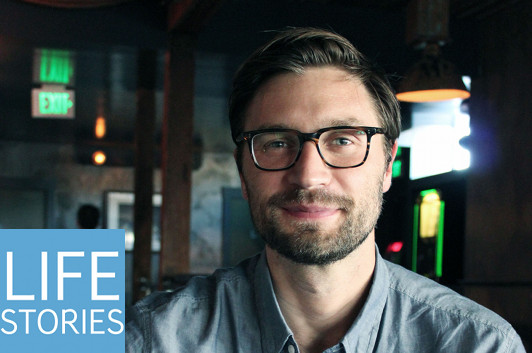A Look at 2013’s Best Novel Nebula Nominees
I’ve been reading my way through this year’s nominees for in the Best Novel category for the Nebulas (an annual award voted on by the Science Fiction Writers of America), and at the beginning of April I found out one of those shortlisted titles, Karen Joy Fowler’s We Are All Completely Beside Ourselves, had been named the winner of the PEN/Faulkner Award—which, like the National Book Award, is intended to recognize the year’s best in American fiction.
It’s a great selection; I was completely hooked by the story before the end of the first chapter, and by the voice of Rosemary Cooke, a college student prompted by her friendship with a volatile classmate to prod the memories of her own emotional trauma, which stem from her sister’s removal from the family nearly twenty years earlier. Fowler deliberately keeps the details sketchy, parsing out information about Fern in bits and pieces, shaping the way that readers process Rosemary’s story and her emotional state before the big reveal. (Some reviewers have discussed this aspect of the story openly; indeed, if you’re going to have any sort of extended discussion about how We Are All Completely Beside Ourselves works as a novel, you can’t avoid the spoiler. But I’m going to let you discover it for yourself.)
My only point of pushback against this novel as a Nebula nominee is that it isn’t science fiction, at least not as I’ve come to understand the term through a lifetime of reading. Yes, the truth about Fern is directly related to the scientific research the Cooke parents were conducting—but there is nothing fantastical or futuristic about that research. In fact, Fowler bases the Cooke family’s experiment on several prior real-life examples, and she keeps what happens well within the realm of the scientifically plausible. The results, I’d say, are much closer to the social-issue novels of Jodi Picoult or Ruth Ozeki than to science fiction or fantasy.
(I’ve heard a similar point raised about another of the Nebula nominees, Nicola Griffith’s Hild, but I’ll recuse myself from that conversation because I’ve had just enough friendly interaction with Griffith over time that my enthusiasm for her work has very little pretense of objectivity.)
(more…)
14 April 2014 | read this |
Life Stories #67: Arlo Crawford
Subscribe to Life Stories in iTunes
In this episode of Life Stories, the podcast where I talk to memoir writers about their lives and the art of writing memoir, I’m talking with Arlo Crawford about A Farm Dies Once a Year, the story of how he quit his job at 31 and moved back to his parents’ organic farm in Pennsylvania, his girlfriend Sarah soon to follow. As we discuss during our conversation, it’s not a permanent move—Crawford couldn’t wait to get off the farm when he was growing up, and though he gained a new respect for his parents’ accomplishment, it’s not the direction he wants to take… nor would Sarah (now his wife) be inclined to follow if it were. I’d also wondered if there were any other books about farming or farm life that had been models for him; he told me about explicitly not wanting to do another story about the vital role farms play in our modern world (“Deeply Rooted,” as he jokingly refers to them), citing writers like William Maxwell and Geoff Dyer instead:
“When I think about the writing that I want to do, it has that edge, it has that irony. That’s the sort of writing that I think I want to produce. And then I sat down to write this book, and it sort of ended up being the exact opposite book than I had in my mind when I started… There’s not a lot of irony in it, for better or worse, and I was surprised about that… The writers that I start with, and I really love and appreciate, is not necessarily what I end up producing myself.”
Listen to Life Stories #67: Arlo Crawford (MP3 file); or download this file by right-clicking (Mac users, option-click). Or subscribe to Life Stories in iTunes, where you can catch up with earlier episodes and be alerted whenever a new one is released. (And if you are an iTunes subscriber, please consider rating and reviewing the podcast!)
10 April 2014 | life stories |


 Our Endless and Proper Work is my new book with Belt Publishing about starting (and sticking to) a productive writing practice.
Our Endless and Proper Work is my new book with Belt Publishing about starting (and sticking to) a productive writing practice. 
